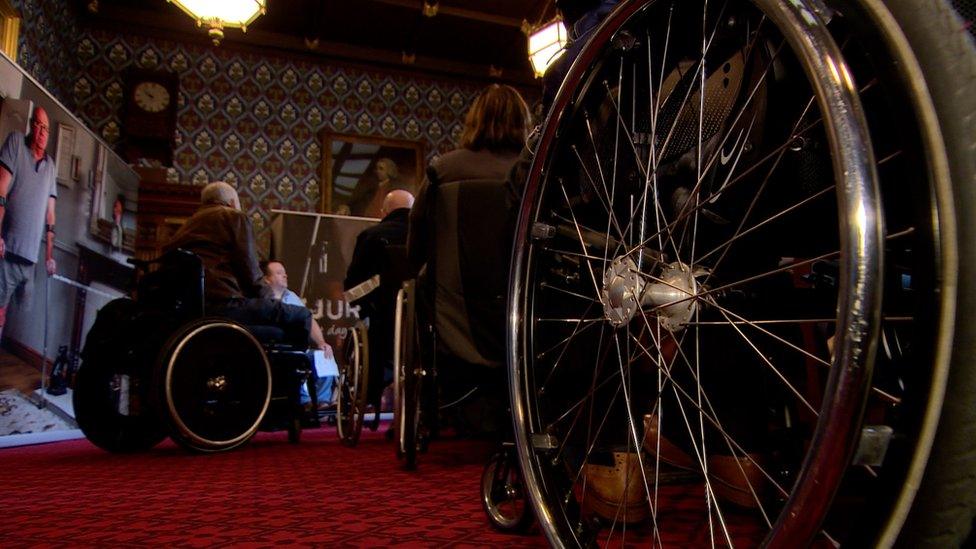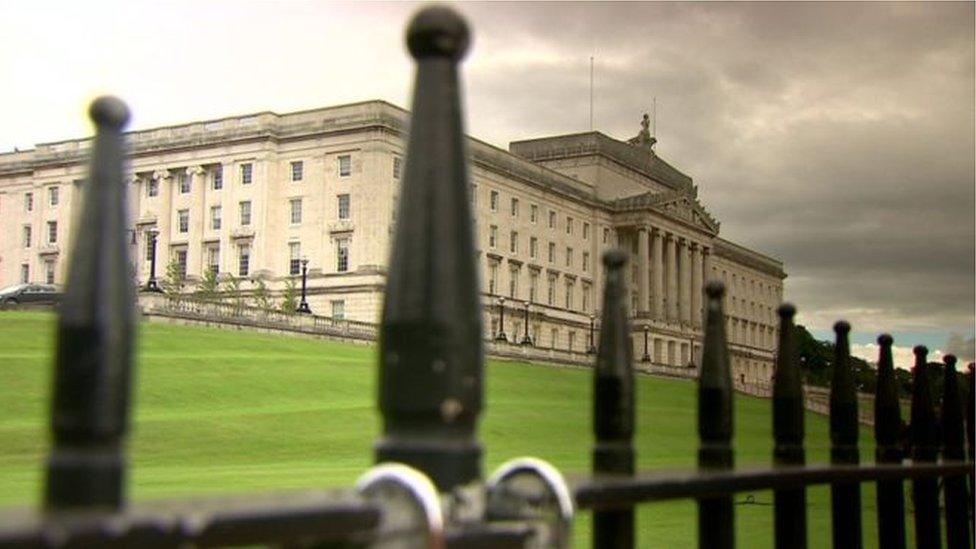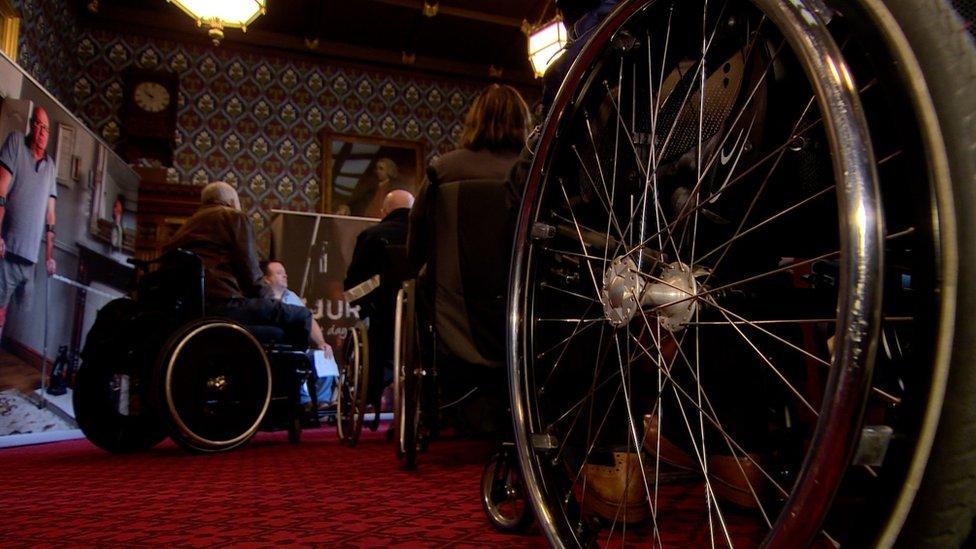Dispute over 'conviction' guidelines delays Troubles pension
- Published

Payments to people physically injured or traumatised had been due to commence on 29 May
The BBC has seen the draft government guidelines at the centre of a growing political row over the Troubles pension.
They state "a relevant conviction" or "exceptional circumstances" could make a person's entitlement to payments "inappropriate."
Sinn Fein has argued they go beyond what is in legislation.
The Northern Ireland Office (NIO) disagrees and with the DUP are angry at Sinn Fein for blocking progress.
Applications for payments of between £2,000 and £10,000 a year to people physically injured or traumatised had been due to commence on May 29.
But a dispute over initial costs of £100m, as well as Sinn Fein refusing to nominate a department to run the scheme, has left it in limbo.

The Troubles pension was drawn up in 2019 by the UK government, when the Stormont assembly was not functioning.
The legislation is explicit in excluding those who received an injury participating in an act of violence.
But unpublished guidelines, circulated amongst the parties, are being drawn up for a judge-led panel who will determine which applicants qualify.
The guidelines mention "a relevant conviction" of longer than 30 months.
Sinn Fein has previously stated this could mean the exclusion of former prisoners.
The draft guidelines also refer to other "exceptional circumstances" being taken into consideration.
The NIO has strongly rejected Sinn Fein's interpretations and believe the party's intentions are to re-open negotiations around people "injured by their own hand."
There is also gridlock over whether London or Stormont pays for the scheme.
First Minister Arlene Foster has previously described it as unaffordable without being financed from Westminster.
- Published4 June 2020

- Published3 June 2020

- Published4 March 2020

- Published21 May 2020
